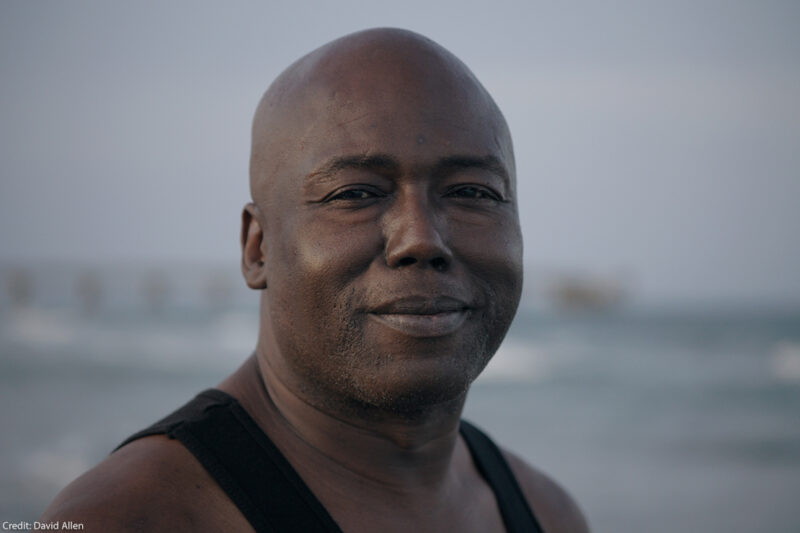My Journey From Death Row to Becoming an Advocate for Justice


In 2006, I was sentenced to death for a crime I didnтАЩt commit. The jury in my case was split 8-4 about the death sentence. Eight people thought I should be executed, and four people thought I should not be. Despite the divided jury, I was sentenced to death.
At the time in Florida, it was possible for a person to be sentenced to death by a non-unanimous jury. Only in 2017 did the law change to require a unanimous jury. But this year, Florida took a step backwards, reinstating non-unanimous juries for the death penalty.
Florida is one of two states that still sends people to death row even if the jury is split. ItтАЩs no surprise that Florida also has more wrongfully convicted people exonerated from death row than any other state тАФ in almost every case, the exonerated person was sentenced to death by a non-unanimous jury.
When I was sent to death row, I was afraid. Like many people, I believed the people on death row were monsters, the worst of the worst. As soon as I got there, each one of the guys asked me my name and what county I was from. They passed around a pillowcase and each person shared a little something тАФ food, cigarettes, coffee тАФ so I could have something for my first days on the row. I saw the real human part of the guys, and those people are not monsters.
I was on death row for three years until 2009, when the Florida Supreme Court vacated my conviction. In a unanimous decision, the justices said the government didnтАЩt have enough evidence and I shouldnтАЩt have been convicted. IтАЩm the 23rd person to be exonerated from FloridaтАЩs death row.
Coming home has been a journey.
Even though I was exonerated, I still had a criminal record. It took me four years to get the state to update my record to show my conviction had been vacated. But I still have difficulty with the background check when I apply for jobs or for an apartment тАФ all they see is that IтАЩve been arrested for murder, not that I was wrongfully convicted. I still donтАЩt have my voting rights restored. Only last year did I get my first real job after my trial. The process to erase a record and get compensation for a wrongful conviction in Florida is extremely difficult. ItтАЩs not enough that my conviction was vacated by a unanimous Florida Supreme Court. A person seeking compensation for a wrongful conviction also has to produce a certificate of innocence from a prosecutor or judge.
Fourteen years later, I still have physical and emotional effects from the row: anxiety, high blood pressure, a chronic sinus infection. Even though IтАЩve been exonerated, I feel like IтАЩm serving a life sentence.
It is still hard for me to sleep тАФ I have to imagine myself in a story. These days, I imagine IтАЩm a superhero тАФ people donтАЩt know my identity, and I advocate for justice in the Florida legislature.
In this case, itтАЩs not just a story for me to sleep; itтАЩs my reality. I became an advocate for ending the death penalty and reforming the criminal justice system soon after returning home. Today, IтАЩm the executive director of Witness to Innocence, an organization that empowers death row exonerees and works to end the death penalty.
Earlier this year, I advocated against the law that reinstated non-unanimous juries in Florida for the death penalty. Despite being living proof that non-unanimous juries are not in the interest of justice, the state legislature and Gov. Ron DeSantis passed the law. I hear many politicians and lawmakers say they want to be tough on crime, but that isnтАЩt going to lower the crime rate.
Despite whatтАЩs happening in FloridaтАЩs state politics, I know that Floridians are stronger when we are united, rather than divided.
When I was in the courtroom and I heard тАЬWe, the people of Florida, sentence you to die,тАЭ I heard a lot of power in that phrase. We the people are the power. As Floridians we have to stop allowing division to keep us from making things right in Florida: from the criminal justice system, to the rights of LGBTQ people, to immigration. We all want life and freedom here in Florida. We want fairness and equality. We have to stand together to make that a reality. ThatтАЩs why this summer, IтАЩm organizing a speaking tour across the state to bring us together. I use my voice to unite us across our differences. ThatтАЩs how I understand my experience of wrongful conviction and the death penalty.
One of the first times I spoke about my experience was at a Catholic Mass. The priest introducing me explained that God tests us to be a powerful voice, and those stories are carried through history and become powerful enough to touch people. He considered my experience one of those powerful stories.
If you look at the stories in the Bible, God took people and gave them an assignment. And I feel like God chose me and took me through death row to be an advocate for justice and to help people. Despite what I'm going through, that is the job IтАЩm going to keep doing until the day I die.


